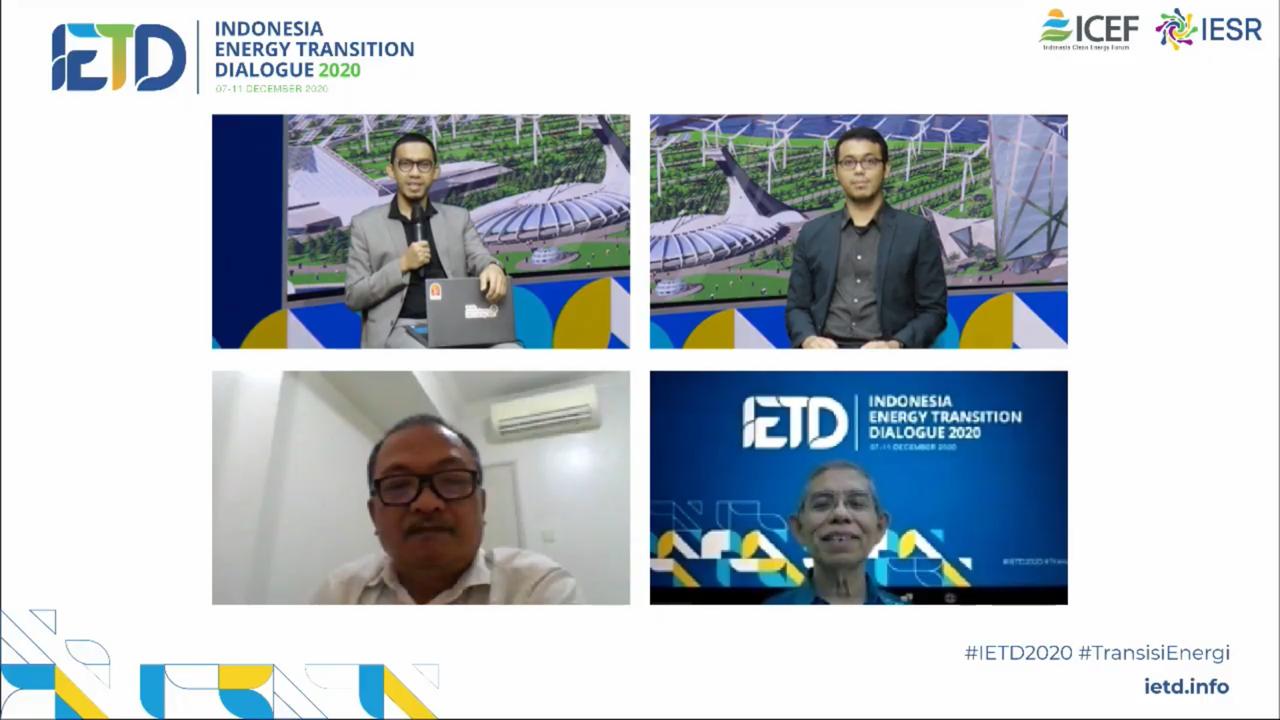Day 4 Indonesia Indonesia Energy Transition Dialogue 2020, Better energy system planning to transition the Indonesian power sector
Jakarta, December 10, 2020 – The climate of renewable energy policies in Indonesia is considered unsupportive towards renewable energy as of yet. Researchers and experts noticed an overlap between the General Plan for State Energy (RUEN) and the Electricity Supply Business Plan (RUPTL) devised by PT PLN.
Chairman of the Indonesian Renewable Energy Society (METI), Dr. Surya Darma, said that the government had detailed the efforts to reduce carbon emissions in the RUEN. But, on the other hand, the government still signed the RUPTL of PT PLN which is not in accordance with the RUEN. “This is a paradox. The target itself is already unsuitable, let alone the achievement?” said Surya.
According to Surya, the targets between RUEN and RUPTL that are not in line with each other will keep creating overlapping policies in the renewable energy sector. The government still has 8 years to revise the RUEN.
However, if it is impossible, the only way to handle that is by accelerating energy transition to make up for the gap between RUEN and RUPTL. “If the renewable energy target in RUEN is 45.2 GW, then the realization scenario could reach up to 22.62 and 25 GW,” said Surya.
Apart from the conflicting targets, the policy climate in Indonesia is still unclear in regard to the party responsible for implementing renewable energy. This was explained by academics from the School of Electrical and Informatics Engineering, Bandung Institute of Technology (ITB), Pekik Argo Dahono.
“In implementing the RUEN, it is unclear who will be responsible, this is what causes many overlapping renewable energy policies. Those who supervise are different each time, ”said Pekik.
Pekik considered the policy revision is too time-consuming. That being said, what can be done is to fulfill the targets written in RUEN. In addition, providing incentives for renewable energy development must also be accompanied by the readiness of the electricity system to receive renewable energy. Pekik said that the government should avoid being unprepared when coal is completely eliminated from Indonesia’s electricity system.

